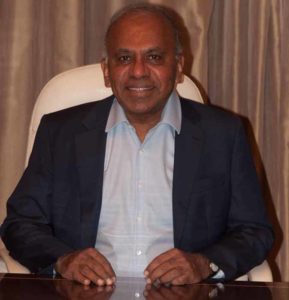Basic science research was crucial to the US’s economic advance, and it will be so for India’s, says Prof Subra Suresh, a graduate of IIT Madras and one of the world’s foremost scientists.

Suresh notes that the National Science Foundation (NSF) in the US, which he led for three years between 2010 and 2013, has funded research that has led to 260 American Nobel Prize winners. The NSF, founded in 1950, funds basic research, and currently has an annual budget of $8 billion. The foundation’s seen as a primary driver of the US economy, advancing knowledge to sustain global leadership.
“You can call it basic science, but most of those findings have led to industrial applications, from pharmacy to space to instrumentation,” says Suresh, who was professor at MIT, president of Carnegie Mellon University, and since 2018 is president of Singapore’s prestigious Nanyang Technological University (NTU).
He says it’s very difficult to predict if some research that is being funded by the NSF would provide a return on investment. “But science, if you can predict it, you’re not doing the most innovative research. Even research that is perceived as not useful, often ends up being extremely useful,” he says.
He notes that British mathematician GH Hardy, who was advisor to India’s mathematics genius Srinivasa Ramanujan at Cambridge University, never wanted to do research that had any practical application. He felt if it had any application, he would be polluting pure science. “But it turned out that every piece of work that he did had some major application. Number theory has major applications in cybersecurity today,” Suresh says.
Nasa, he says, does a lot of basic research in astrophysics. “Einstein’s theory of relativity and gravitational waves, you can call that purely academic research. But without these, space programmes and technology would not have evolved. I think it’s very artificial to differentiate between basic research and applied research,” he says.
Suresh emphasises the importance for a country of the size and scale of India to support basic research. “If we can do that, we can apply them in areas, say, in rural India, the way in which it was not possible to do in the US or Europe. That benefits hundreds of millions of people,” he says.
NSF, he notes, even funded a Princeton professor, Andrew Wiles, to try and solve Fermat’s last theorem, something that mathematicians had not solved for 200 years. It took Wiles more than a decade to solve. “Even if it had no practical application, it pushes the boundaries of human intellect, the same way that philosophy, music, art do. Can India be without philosophy, music or art? So why should pushing the boundaries of human intellect through basic science be any different?” Suresh asks.
Courtesy: The Times of India












